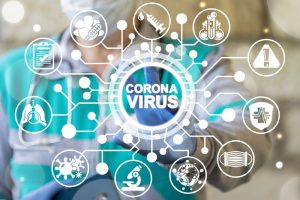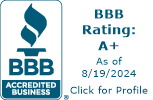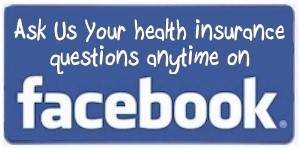 Updated March 13th, 2020 – The CDC reported that illnesses from the new Coronavirus (COVID-19) range from mild symptoms for 80% of the population to severe illness for 10% of the population and death in 2 to 3.4% of confirmed cases. News reports say the people at the greatest risk for serious illness and loss of life are the elderly and people with underlying health issues like diabetes, asthma & high blood pressure. There have been no reported deaths for children under age 9, at this time.
Updated March 13th, 2020 – The CDC reported that illnesses from the new Coronavirus (COVID-19) range from mild symptoms for 80% of the population to severe illness for 10% of the population and death in 2 to 3.4% of confirmed cases. News reports say the people at the greatest risk for serious illness and loss of life are the elderly and people with underlying health issues like diabetes, asthma & high blood pressure. There have been no reported deaths for children under age 9, at this time.
With all the media attention, many people are wondering how their health insurance will cover testing and illness if they or a family member get the Coronavirus.
Your ACA compliant health insurance plan should cover the in-network care you receive if you’re diagnosed as having COVID-19, based on your plan’s benefits. It should also cover in-network testing for COVID-19. Under specified circumstances, health insurance companies are waiving the costs if you are tested for COVID-19 and you will not be charged a co-pay, deductible, or co-insurance. Check your insurance carrier’s website for the most current updates on their coverage for COVID-19 testing.
March 13th, 2020 Update – The Colorado Division of Insurance directed carriers to remove cost sharing on specific services related to COVID-19. In Colorado, there are three circumstances where public health may decide that a patient needs to be tested:
- The patient has a fever OR signs/symptoms of lower respiratory illness, such as cough or shortness of breath, AND the patient has been in close contact with someone confirmed with COVID-19, within 14 days of when symptoms started.
- The patient has a fever OR signs/symptoms of lower respiratory illness (and other diagnoses such as influenza have been ruled out), AND the patient recently traveled to parts of the world where infection rates are high or community spread is occurring, within 14 days of when symptoms started.
- The patient has a severe acute respiratory illness (e.g., pneumonia, ARDS) requiring hospitalization AND without alternative explanatory diagnosis (e.g. influenza).
You may wish to utilize telehealth for non-emergency services when possible. Please find information for telehealth services by carrier below:
-
- Aetna/CVS CVS MinuteClinic
- Aetna-covered Teladoc®
- Anthem Members should go to LiveHealth Online
- Bright Health’s Centura Health Virtual Visits
- Cigna Go to www.mycigna.com and select “Connect Now” to talk with a doctor
- Colorado Peak members should go through their member portal to access telehealth benefits
- Friday Health Members should use or create a Teledoc account
- Humana Access Virtual Visits
- Kaiser Permanente members can call 303-338-4545 or visit www.kp.org. Members can log in and access chat with a doctor or book an appointment online or get access to phone advice
- Oscar Health Access Doctor on Call Service
- Rocky Mountain Health Plans
- United Health Care Access Virtual Visits
After the initial testing for COVID-19, Coloradans can expect to pay normal applicable costs (such as copays for doctor visits and prescriptions) for further treatment. Services like lab work, imaging and hospitalization are often subject to the plan’s deductible and coinsurance.
Review your plan’s Summary of Benefits to see how various services are covered and take care to use your insurance company’s in-network providers for non-emergency services to maximize your covered benefits.
What To Watch For and Do If You Are Symptomatic
The CDC says that “fever, cough and shortness of breath may appear 2-14 days after exposure. If you develop a fever and symptoms of respiratory illness, such as cough or difficulty breathing, and have been within approximately 6 feet for a prolonged period of time with a person known to have COVID-19 or if you live in or have recently traveled to an area with ongoing spread, call ahead to a healthcare professional.
Tell your healthcare professional about your recent travel or contact. Your healthcare professional should determine if you need to be tested for COVID-19. You might also use telehealth services, if your plan offers them, as it helps prevent spreading a virus to others and can help protect you from getting a virus while waiting with others at an office.”
The CDC says, “if you are sick with COVID-19 or suspect you are infected with the virus that causes COVID-19, follow the steps below to help prevent the disease from spreading to people in your home and community.
- Stay home except to get medical care: People who are mildly ill with COVID-19 are able to isolate at home during their illness. You should restrict activities outside your home, except for getting medical care. Do not go to work, school, or public areas. Avoid using public transportation, ride-sharing, or taxis.
- Separate yourself from other people and animals in your home:
- People: As much as possible, you should stay in a specific room and away from other people in your home. Also, you should use a separate bathroom, if available.
- Animals: You should restrict contact with pets and other animals while you are sick with COVID-19, just like you would around other people. Although there have not been reports of pets or other animals becoming sick with COVID-19, it is still recommended that people sick with COVID-19 limit contact with animals until more information is known about the virus. When possible, have another member of your household care for your animals while you are sick. If you are sick with COVID-19, avoid contact with your pet, including petting, snuggling, being kissed or licked, and sharing food. If you must care for your pet or be around animals while you are sick, wash your hands before and after you interact with pets and wear a facemask.
- Call ahead before visiting your doctor: If you have a medical appointment, call the healthcare provider and tell them that you have or may have COVID-19. This will help the healthcare provider’s office take steps to keep other people from getting infected or exposed.
- Wear a facemask: You should wear a facemask when you are around other people (e.g., sharing a room or vehicle) or pets and before you enter a healthcare provider’s office. If you are not able to wear a facemask (for example, because it causes trouble breathing), then people who live with you should not stay in the same room with you, or they should wear a facemask if they enter your room.
- Cover your coughs and sneezes: Cover your mouth and nose with a tissue when you cough or sneeze. Throw used tissues in a lined trash can. Immediately wash your hands with soap and water for at least 20 seconds or, if soap and water are not available, clean your hands with an alcohol-based hand sanitizer that contains at least 60% alcohol.
- Clean your hands often: Wash your hands often with soap and water for at least 20 seconds, especially after blowing your nose, coughing, or sneezing; going to the bathroom; and before eating or preparing food. If soap and water are not readily available, use an alcohol-based hand sanitizer with at least 60% alcohol, covering all surfaces of your hands and rubbing them together until they feel dry. Soap and water are the best option if hands are visibly dirty. Avoid touching your eyes, nose, and mouth with unwashed hands.
- Avoid sharing personal household items: You should not share dishes, drinking glasses, cups, eating utensils, towels, or bedding with other people or pets in your home. After using these items, they should be washed thoroughly with soap and water.
- Clean all “high-touch” surfaces everyday: High touch surfaces include counters, tabletops, doorknobs, bathroom fixtures, toilets, phones, keyboards, tablets, and bedside tables. Also, clean any surfaces that may have blood, stool, or body fluids on them. Use a household cleaning spray or wipe, according to the label instructions. Labels contain instructions for safe and effective use of the cleaning product including precautions you should take when applying the product, such as wearing gloves and making sure you have good ventilation during use of the product.
- Monitor your symptoms: Seek prompt medical attention if your illness is worsening (e.g., difficulty breathing). Before seeking care, call your healthcare provider and tell them that you have, or are being evaluated for, COVID-19. Put on a facemask before you enter the facility. These steps will help the healthcare provider’s office to keep other people in the office or waiting room from getting infected or exposed. Ask your healthcare provider to call the local or state health department. Persons who are placed under active monitoring or facilitated self-monitoring should follow instructions provided by their local health department or occupational health professionals, as appropriate.
- If you have a medical emergency and need to call 911, notify the dispatch personnel that you have, or are being evaluated for COVID-19. If possible, put on a facemask before emergency medical services arrive.”
For the most current information about COVID-19, visit the CDC website.






plesae have a PR person contact me
Is there something we can help you with?